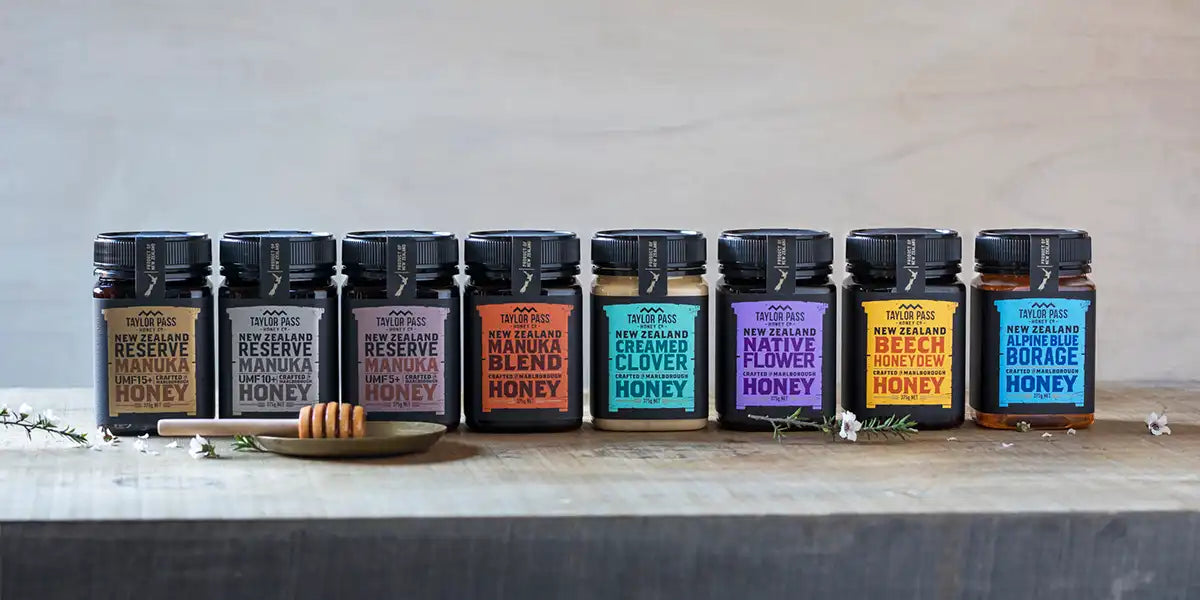Manuka honey is native to New Zealand. When New Zealand bees discover the flowers of the manuka bush, the result is exceptional honey with extraordinary healing properties. And because manuka is a pure, raw, unpasteurized honey, it retains all its natural goodness and potential healing power.
Raw honey is moist and sterile, so it is ideal for treating wounds and burns. Bees add an enzyme called glucose oxidase during honey production and it is this enzyme that is responsible for the formation of hydrogen peroxide, which acts as an antiseptic and antibiotic. Manuka honey is unique because it has antibacterial qualities above and beyond the hydrogen peroxide action of regular honey.
Something special in the chemical makeup of manuka flower nectar (scientists still are not sure what it is or how it works) gives manuka honey extra antibacterial oomph. This extra something is referred to as the Unique Manuka Factor or UMF.
However, not all manuka honey has the Unique Manuka Factor. Only a small proportion of manuka bushes produce manuka nectar that has the Unique Manuka Factor, and those that do produce it, do so in varying strengths.
The UMF standard was developed to give consumers a benchmark when buying manuka honey. Only honey that has been tested and proven to have demonstrable Unique Manuka Factor can be labelled as UMF Manuka honey. UMF Manuka honey is also rated by strength -- from UMF 5, which is equivalent to a 5% antiseptic solution, up to UMF 20, which is equivalent in strength to a 20% antiseptic solution.
UMF Manuka honey can be particularly effective when applied topically to skin eruptions. Cold sores, acne, eczema, burns (from the sun and from radiation treatment), ulcers, fever blisters, insect bites, and even diseased gums, have all been shown to benefit from an application of manuka honey. A few hospitals have started to use manuka honey in the treatment of wounds because it protects against drug-resistant infections like MRSA.
Some people think manuka honey has a slightly medicinal taste, while others find it quite delicious. If you’re eating manuka honey for health reasons, then a medicinal taste may be a small price to pay to alleviate stomach ulcers, diarrhea, acid reflux, and heartburn.
Whatever your reasons for buying manuka honey, be sure to look for honey with a certified UMF Manuka label. For general health, a UMF 5 concentration is recommended. If you’re aiming to treat wounds, then go for UMF 20. Always be sure the honey you’re using is sterile if you’re trying to heal wounds.
UMF Manuka honey is unique among superfoods in that the health benefits attributed to it have been empirically proven. Not bad for the work of a few thousand Kiwi bees. Just remember that not all manuka honey has that UMF oomph. Pay a bit more for genuine UMF Manuka honey and you’ll enjoy the benefits for years to come.


